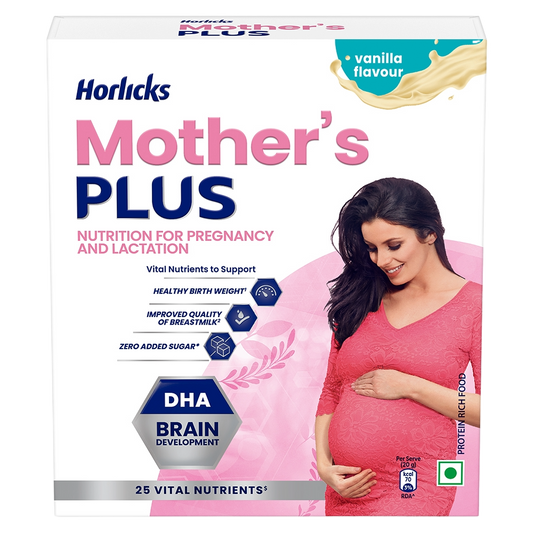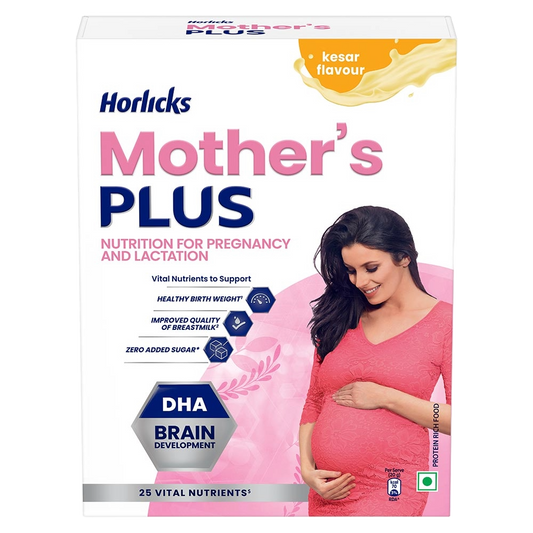The initial few days after your delivery will be a whirlwind of juggling multiple things on bare minimum sleep. It is all about diaper changes, feeding the light of your life, putting them to sleep, trying to catch a shuteye yourself, and repeating the cycle.
It is quite common to be worried about your breast milk supply at this stage. Is it sufficient? Is it supporting your baby’s needs? And other such questions. If thoughts like these are worrying you at this stage, then you are not alone! A few indications that you are doing well are - your baby is feeding around six to eight times a day, putting on weight, and is sleeping well. At your end, if your breasts feel hard and heavy before the feed and “empty” and softer after your baby is done – it means everything is working just the way it should.
However, if you feel the need to improve your breast milk supply, you can try adding the following five food items to your diet
1. Fenugreek
Fenugreek seeds (methi dana) and fenugreek leaves (methi saag) have been a part of the postpartum diet for new and lactating mothers for centuries now.
They pack in Vitamin B, omega 3 fatty acids, iron, and calcium – all amazing and essential nutrients for a lactating mother. Omega 3 Fatty Acids ensure proper brain development and calcium aids bone development.
It is a versatile ingredient and can be used in multiple ways. Methi dana laddoos and methi chai are popular post-pregnancy staples. Methi leaves can be added to parathas, curry, soups, dals etc.

2. Dried Fruits And Nuts
The caloric needs of a lactating mother are slightly greater than those of a pregnant woman. Dried fruits and nuts such as almonds, walnuts, raisins, dates, figs, and cashews are calorie-dense foods that will provide the energy and nutrients required for optimum milk production to new mothers.
Have soaked dried fruits first thing in the morning or have traditional dried fruit dishes such as laddoos, panjiri, or even halwa for mid-meal snacking.
3.Green Leafy Vegetables
Green leafy vegetables such as fenugreek (methi), spinach (palak), moringa (sahjan), amaranth (chawli), mustard (sarso) etc., are rich sources of iron, folate, calcium and Vitamins A and B. They improve the quantity and quality of breast milk and aid lactating mothers.
It is recommended to include at least two portions of different green leafy vegetables, daily in the form of curries, soups, or parathas.
4.Gourds
All the vegetables from the gourd family such as bottle gourd, bitter gourd, snake gourd, apple gourd, etc., are known to aid lactation. Along with being highly nutritious, they are also easier to digest.
5.Lentils And Pulses
Pulses and lentils are excellent sources of plant-based proteins and are also believed to improve the milk supply in lactating mothers. A hearty portion of piping hot dal and salads with sprouts with every meal is a good way to aid lactation.
Keep In Mind
While the nutritional needs of a pregnant woman and a lactating mother are not the same, they are not worlds apart either. A good strategy would be to continue eating the healthy pregnancy diet with a few tweaks here and there and you’ll be good to go.
Let’s take a look at the nutritional needs of a pregnant woman vis-à-vis a lactating mother:
1. Energy
Lactating mothers exclusively breastfeeding need an additional 600 calories per day (0-6 months) to keep up with breastmilk production required to support the baby’s growing needs. This can be achieved by consuming carbs in dried fruits and nuts, whole grains, fruits, and vegetables.
2.Calcium
Maintaining a daily consumption of 1200 mg of calcium per day is enough for both pregnant and lactating women. It plays a vital role in building strong bones, teeth, and healthy muscles. Foods that are rich in calcium are milk and other dairy products, spinach, chickpeas, kidney beans etc.
3.Iron
Including iron-rich food items in your diet is equally important while you are pregnant as well as lactating. It ensures optimum supply of oxygen to your baby during pregnancy and later it helps prevent iron deficiency. Dietary sources of iron include dark green leafy vegetables, meat, peanuts, dates, and legumes.
4.Protein
The recommended protein intake for a lactating mother (0-6 months) is about 63g per day and for lactating mothers (7-12 months) is 59g per day. It is essential for the development of the baby’s muscles and bones. Protein-rich foods include eggs, meat and poultry, soy, lentils, legumes, tofu, and peanuts.

A great way to ensure that you get all the essential nutrients during pregnancy and lactation is by following a balanced daily diet and complementing it with a nutritional beverage. Horlicks Mother’s Plus with milk every day provides nutrition for the mother’s health and baby’s growth. Specifically designed with the nutritional requirements of pregnant and lactating women in mind, it contains ~25 vital nutrients, choline, DHA, high-quality protein, Vitamin B1, B2, B6, B12, A, Selenium, and iodine. These nutrients are known to support the normal development of the brain and nervous system and improve the quality of breast milk.
Everything you eat has a cascading effect on your baby during lactation. Being mindful of your diet will ensure the quality and quantity of your breast milk and have a lasting effect on your baby’s health and well-being.









